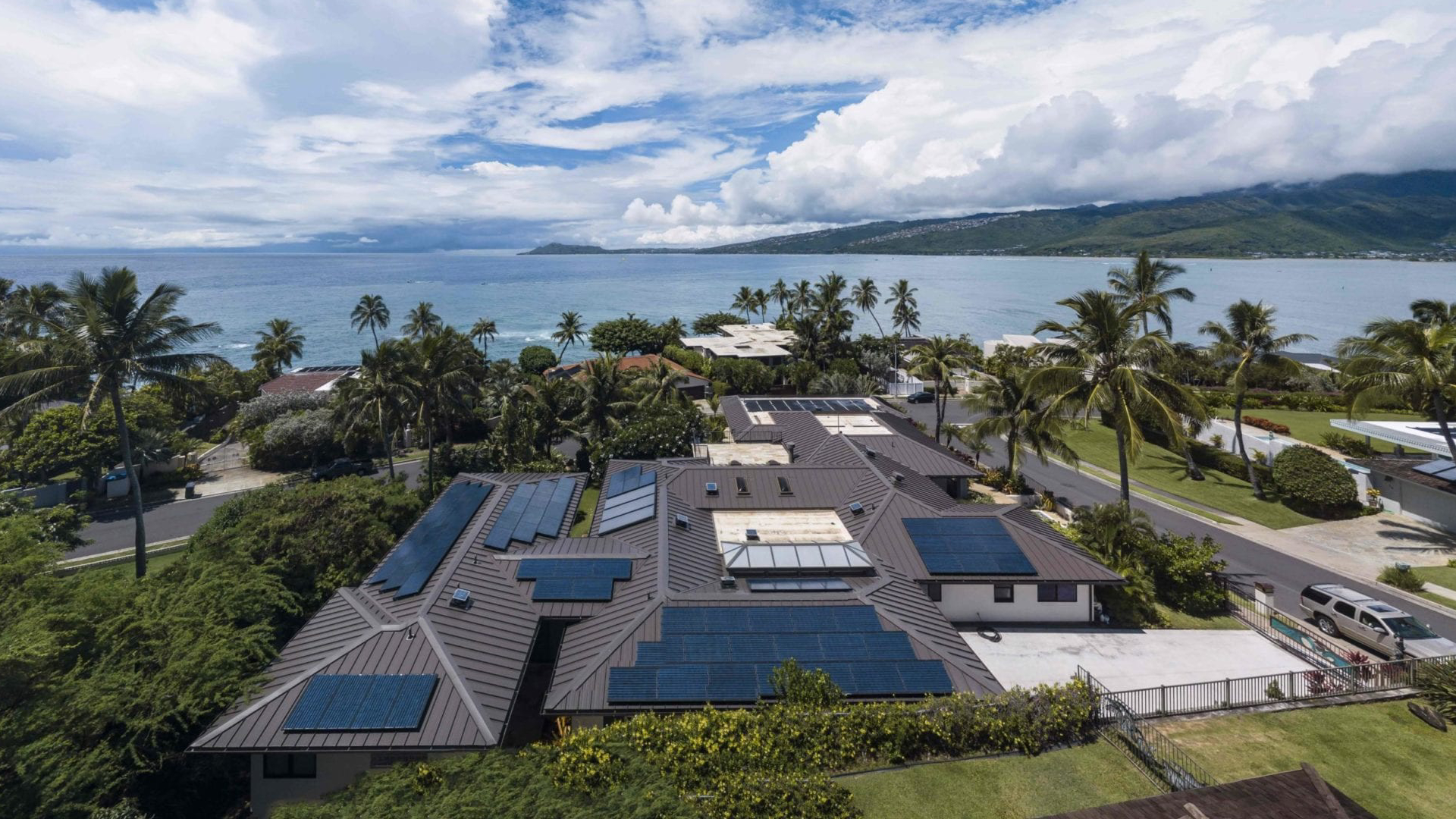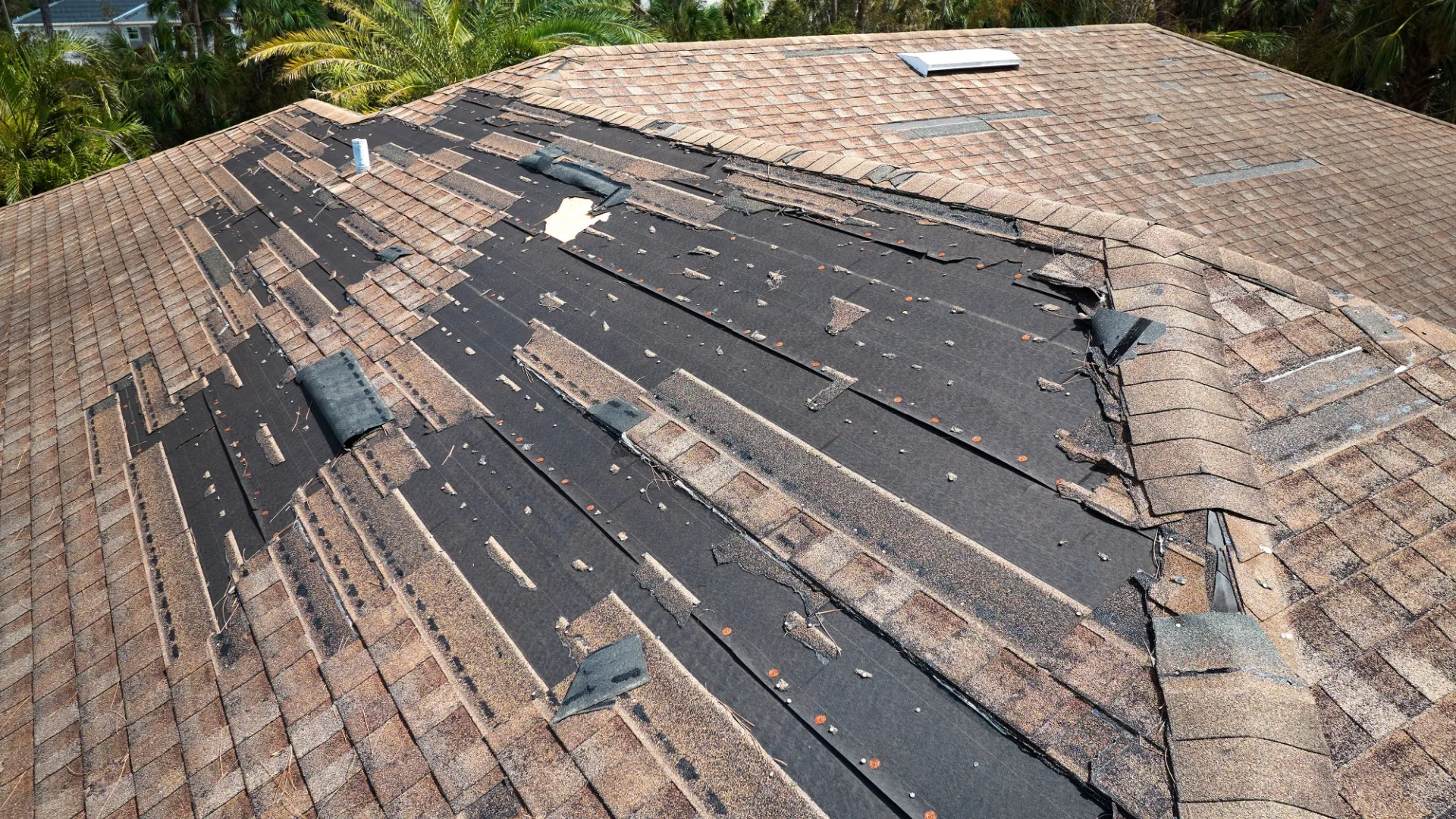Top Honolulu roofing experts offering dependable maintenance
Top Honolulu roofing experts offering dependable maintenance
Blog Article
The Benefits of Energy-Efficient Roofing for Lower Utility Expenses
Energy-efficient roof covering provides an engaging case for house owners seeking to reduce their utility costs while boosting general convenience. By integrating advanced products that reflect heat and improve insulation, these roof solutions can considerably lower heating and cooling demands. This shift not just translates right into prompt expense financial savings however also adds to the long-lasting toughness of the roofing system itself. As power prices remain to climb, the effects of embracing such roof require a closer exam. What additional benefits might these products offer beyond simply economic cost savings?
Understanding Energy-Efficient Roof Covering
Comprehending energy-efficient roof covering starts with identifying its essential duty in improving a structure's thermal efficiency. Roof substantially influence a framework's power consumption by regulating heat transfer in between the exterior and interior settings. An effective energy-efficient roofing system decreases warm absorption during the warmer months and decreases warmth loss during cooler durations, promoting a comfortable living or working room while reducing dependence on home heating and cooling down systems.
The layout and building of energy-efficient roofings include various attributes that add to their effectiveness. These roofing systems commonly consist of reflective materials that reduce solar warmth gain, as well as insulation layers that boost total thermal performance. Correct air flow is also critical, as it aids to dissipate excess warmth and wetness, additionally boosting power performance.
In addition, energy-efficient roofing can extend the life expectancy of the structure's general structure by alleviating the damage related to temperature level variations. This toughness equates right into long-term cost savings, as homeowner might experience fewer fixings and substitutes with time. Ultimately, understanding the essential principles of energy-efficient roof covering permits stakeholders to make informed choices concerning structure style and upkeep, promoting sustainability and economic benefits while doing so.
Kinds Of Energy-Efficient Roofing Materials
When picking roofing materials, residential or commercial property proprietors have a variety of energy-efficient alternatives that can significantly boost a building's sustainability. Among one of the most popular products are reflective metal roofs, which effectively show sunshine, decreasing warm absorption. This characteristic not just helps keep lower indoor temperature levels however also extends the lifespan of the roof covering product.
One more outstanding selection is great roofing membranes, commonly made from modified asphalt or single-ply products. These membrane layers are designed to mirror solar power and can reduce cooling expenses significantly (roofing honolulu). In a similar way, asphalt tiles with reflective granules can likewise improve power performance while offering a timeless visual.

Furthermore, floor tile roofings, particularly those made from clay or concrete, can add to power efficiency as a result of their thermal mass, which aids regulate indoor temperature levels. Eco-friendly roofing systems, including vegetation, offer insulation benefits and decrease city warmth islands, making them a significantly prominent selection for eco-conscious home proprietors.
Influence on Utility Costs

Moreover, energy-efficient roof coverings can additionally improve thermal insulation, helping to preserve heat during colder months. This double functionality suggests that heating unit can operate a lot more successfully, additional contributing to lower power costs. Property owners may see a decrease in both air conditioning and heating expenses, creating a more well balanced energy consumption account throughout the year.
Additionally, several energy-efficient roof covering alternatives include longer lifespans and less upkeep requirements, which can equate to further price savings with time. By investing in these materials, residential property proprietors can take advantage of prompt reductions in utility bills while also appreciating lasting economic advantages. In recap, the impact of energy-efficient roof covering on utility costs is substantial, making it a sensible financial investment for those seeking to enhance their power expenditures.
Ecological Advantages
One noteworthy advantage of energy-efficient roof is its favorable influence on the environment. These roof are made to mirror more sunshine and soak up much less warm, which substantially lowers the metropolitan warm island impact. By reducing surrounding temperatures, energy-efficient roofs add to enhanced air quality and decreased energy demand for cooling down in nearby structures.
Furthermore, the reduction in power intake decreases the reliance on fossil gas for power generation, causing reduced greenhouse gas exhausts (roofing honolulu). This not just alleviates environment adjustment but likewise minimizes the hazardous toxins launched into the ambience, benefiting both human wellness and the community

Finally, the long life of energy-efficient roofing systems frequently results in lowered waste generation. Traditional roof covering materials might call for more frequent substitute, causing boosted landfill contributions. On the other hand, energy-efficient choices tend to have actually extended lifespans, thus supporting environmental stewardship. In general, the environmental advantages of energy-efficient roof covering are substantial, making it an important factor to consider for eco-conscious property owners and contractors alike.
Enhancing Home Value
Purchasing content energy-efficient roof covering can significantly enhance home value, attracting an expanding market of ecologically mindful purchasers. As awareness of climate change and sustainability increases, several prospective home owners focus on energy efficiency when evaluating buildings. A check that properly designed energy-efficient roof covering not only minimizes energy costs however likewise demonstrates a commitment to environmental duty, making a home a lot more eye-catching in an affordable realty market.
Furthermore, energy-efficient roof materials, such as cool roofing systems and solar roof shingles, typically come with extensive service warranties and lower upkeep expenses, better enhancing a residential property's allure. This investment can cause a higher assessment worth and can draw in purchasers ready to pay a premium for homes with sustainable functions.
In addition, energy-efficient roof coverings can improve overall residential or commercial property aesthetic appeals, as many modern-day products supply a variety of designs and colors. This versatility permits home owners to maintain building stability while achieving energy savings. Inevitably, by picking energy-efficient roof covering, homeowners not visit this site only contribute to an extra sustainable future yet also place their residential or commercial property for higher resale potential, making it a smart investment in both functionality and bankability.
Final Thought
Finally, energy-efficient roofing provides significant advantages, consisting of decreased energy expenses, improved thermal performance, and ecological advantages. The usage of reflective materials and improved insulation not just minimizes warm absorption and loss yet likewise adds to reduce energy consumption. Additionally, these roof covering solutions can raise building value and require less upkeep over time. Emphasizing the relevance of adopting energy-efficient roofing can result in substantial monetary savings and an extra sustainable living setting.
Report this page